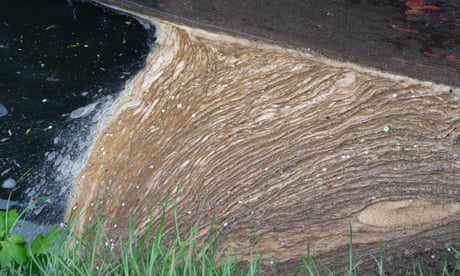
The destruction of nature over the rest of the decade could trigger a bigger economic slump in Britain than those caused by the 2008 global financial crisis and the Covid pandemic, experts have warned.
Sounding the alarm over the rising financial cost from pollution, damage to water systems, soil erosion, and threats from disease, the report by the Green Finance Institute warned that further breakdown in the UK’s natural environment could lead to a 12% loss of gross domestic product (GDP) by the 2030s.
In a report that received input from experts across academia and government, the authors argued that “gradual, year-to year environmental degradation is as detrimental or more so than climate change”.
The continued loss of natural habitats in urban and rural areas would compare unfavourably with the financial crisis of 2008, which took about 5% off the value of UK GDP, while the Covid pandemic cost the UK 11% of its GDP in 2020.
The academics used three scenarios to construct the report: domestic risks from continued UK environment breakdown; international risks – including destruction to nature in countries which are key UK trading partners; and a health scenario, focusing on the dangers of a fresh global pandemic.
All three took into account current trends in environmental breakdown – including water and air pollution, soil health erosion and biodiversity loss – resulting in a hit to GDP worth up to 3%, or about £70bn by the late 2020s.
The report then added “acute risks” on top of these trends – including floods, droughts and wildfires – which would result in a 6% loss to GDP in the domestic and international scenarios, and a 12% hit in a health scenario, reflecting the extreme dangers to the UK economy from a renewed pandemic.
Ministers are expected to take an interest in the report amid concern over the potential dangers to the economy from nature breakdown. Environment minister Richard Benyon said the report showed that nature “underpins the health of our economy and it is under threat from a global nature crisis”.
The former Conservative MP, whose family controls a 5,600-hectare (14,000-acre) estate in west Berkshire, southern England, said the responsibility to conserve nature “lies with all sectors and sections of society, and green finance has a crucial role to play”.
He said: “The findings in this report will help people and institutions across the corporate and finance sectors understand that it is in their own interests to go further and faster for the planet to protect it for future generations.”
Shadow environment secretary, Steve Reed, blamed the government for the UK becoming “one of the most nature-depleted countries in the world”.
Saying that the UK needed “to reverse the tide of destruction”, Reed committed Labour to cleaner air and water “and growing nature-rich habitats for wildlife to thrive”.
The Green Finance Institute describes itself as the UK and Europe’s “principal forum for innovation in green finance” bringing together banks, academics, philanthropists and government bodies to develop climate-friendly policies and financial products.
The report warned that unless action is taken, UK banks will need to reduce their exposure to the worst hit industries or find themselves increasing the risk of losses from bad loans. About 50% of the extra cost will come from the loss of nature overseas that the UK relies on to provide food, natural resources and trade.
Partly funded by the government with input from the Treasury and the Department for Environment, Food and Rural Affairs (Defra), the authors also relied on advice and information from the Bank of England, Oxford and Reading universities, the UN’s environment programme, and the National Institute of Economic and Social Research.
The report said: “The impacts of biodiversity loss and environmental degradation will not be felt alone but will compound with climate risks. Both are happening at once and there are strong feedback effects between the loss of natural capital and climate change.”
The study follows a Treasury-backed review in 2021 by the Cambridge economist Sir Partha Dasgupta, who found that the world was being put at “extreme risk” by the failure of economics to take account of the rapid depletion of the natural world.
Last year, the government agency Natural England launched its Nature Returns programme to coordinate efforts across government and the private sector to explore how the UK can best use land in England “to address climate change whilst producing food and promoting thriving nature”.
The agency said it wanted “to mobilise the billions in private investment that government estimates we need to meet our national net zero commitments”.